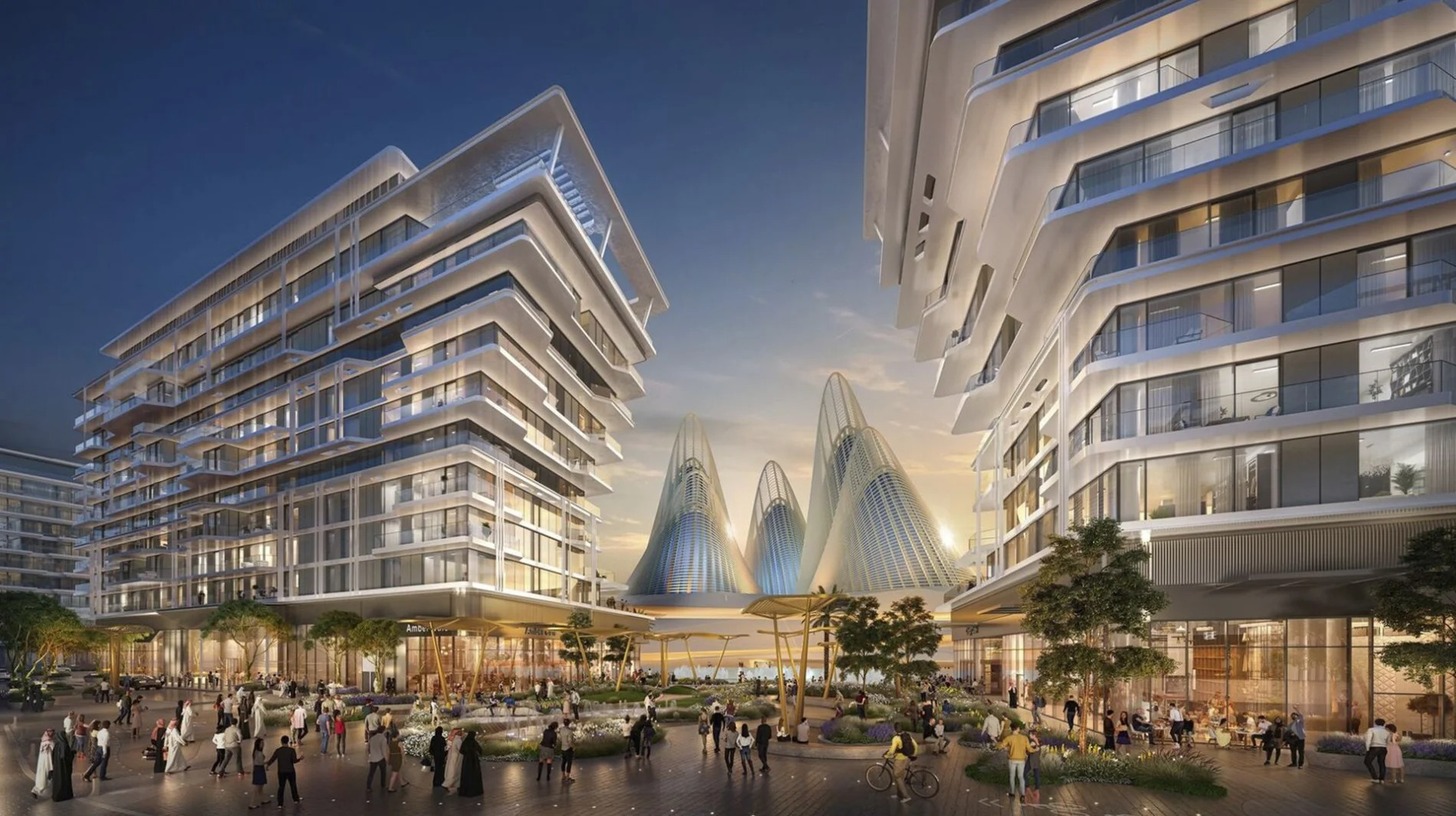The UAE’s property market is booming and driven by demand, economic growth, and foreign interest in projects like Aldar The Source. In Q1 2024, significant growth was reported: Dubai saw a 21% annual rise in sale prices and rentals, while Abu Dhabi experienced a 7% rise in sales prices and a 4% increase in rentals. Reidin.com’s data shows Dubai’s residential property price index surged by 20.71% year-on-year. Apartment prices in Dubai rose by 20.43% and villa prices by 22.08% year-on-year in Q1 2024. By the end of 2023, average apartment prices in Dubai were AED 1,500,000 and villas AED 3,200,000.
Annual Change in House Prices in the United Arab Emirates
Abu Dhabi’s house prices grew moderately in Q1 2024, with a 7.53% increase year-over-year. Apartment prices rose by 6.42%, while villa prices jumped by 12.97%. Demand is strong, with record sales transactions in both Dubai and Abu Dhabi in 2023. Dubai saw a 16% increase in residential sales value and a 20% rise in volume in Q1 2024. Abu Dhabi’s sales volume surged by 17% despite a slight decline in value. The UAE economy expanded by 3.1% in 2023, with expected growth of 4-4.2% in 2024.
Housing Market Cycle
From 2002 to 2008, Dubai’s property prices nearly quadrupled, driven by foreign investments and mega-projects. However, the global financial crisis in 2008 halted progress, leading to a significant drop in transactions and construction. The market recovered between 2012 and 2014 but faced declines from 2015 to 2020 due to oversupply, regulatory changes, and the COVID-19 pandemic. Recovery resumed in 2021, with house prices rising significantly in both Dubai and Abu Dhabi, continuing through 2022 and 2023.
Dubai’s Property Transactions Continue to Rise Strongly
Demand in Dubai’s real estate sector is booming, with 2023 seeing a record 133,134 sales transactions, a 38% increase from the previous year. The total transaction value reached AED 571.3 billion (US$155.54 billion), up 45.8% from 2022. Key areas like Dubai Marina and Palm Jumeirah saw the highest transaction volumes. The growth trend continues in 2024, with Q1 residential sales up 16% in value and 20% in volume. Dubai’s real estate market is evolving rapidly, driven by lifestyle appeal, business-friendly policies, and new visa reforms.
Robust Demand in Abu Dhabi

In 2023, Abu Dhabi experienced a record surge in real estate transactions, reaching 13,298 units, a 75% increase from 2022, with a total transaction value jumping 120% to AED 44 billion. Strong demand continued into 2024, with Q1 real estate deals totaling AED 15.9 billion. High-quality off-plan developments, like Gardenia Bay, saw significant interest, especially from foreign investors, driving prices up by ~15%.
Enhanced Terms for Expats Introduced
In 2019, the UAE presented the Golden Visa system, offering 5- and 10-year renewable visas to foreign investors, professionals, and outstanding students. Key eligibility includes substantial investments in public or property sectors and specialized talents. In 2022, new conditions reduced investment amounts and allowed off-plan property purchases. As of 2023, various investment thresholds enable obtaining 2, 3, 5, or 10-year residency visas, with streamlined application processes available 24/7.
Liberal Foreign Homeownership Rules
Foreign ownership laws in the UAE, especially in Dubai and Abu Dhabi, have become very liberal. Foreign nationals can now buy freehold properties in designated zones, and GCC nationals can own anywhere in the Emirates. Abu Dhabi also allows freehold ownership in investment zones. These changes include market-boosting measures like the 2012 relocation mandate for public sector employees and the 2013 removal of the 5% annual rent increase cap. Most buyers are UAE nationals, followed by citizens from India, Saudi Arabia, the UK, and Pakistan.
Increasing Housing Supply
In 2023, Dubai completed 39,000 new residential units, raising its total housing stock to 719,000 units. Abu Dhabi added 5,000 units, reaching a total of 284,000. For 2024, Dubai anticipates 35,000 new units, while Abu Dhabi projects 8,000. In the first quarter of 2024, Dubai delivered 10,000 units, with an additional 25,000 expected by year-end, primarily in key areas like MBR City and Business Bay. Abu Dhabi added 1,600 units in Q1, with 6,000 more expected by the end of the year.
